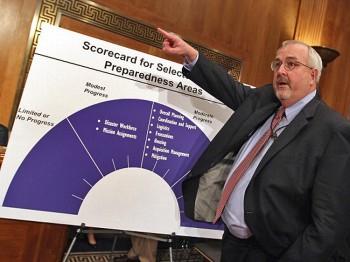BOSTON—An early signatory to the U.S. Conference of Mayor’s Climate Protection Agreement, Boston’s Mayor Thomas Menino has created a substantial portfolio of environmental programs for conservation, recycling, urban forestry, sustainable transportation, and high performance buildings. Boston was ranked No.7 of the most sustainable cities in the nation by SustainLane in 2007 and the third greenest city in America by Popular Science magazine in 2008.
Boston has issued a constant stream of green initiatives. The latest was an announcement made at “A View from the Top: Sustainable Roofs in Boston” that released a comprehensive Solar Permitting Guide and a new ordinance intended to reduce building permit fees by 60 percent for solar projects by removing the cost of photovoltaic panels and other hardware from the calculation of project costs. This will support residents, businesses, and institutions interested in installing solar energy systems and further the mayor’s goal of the city generating 25 megawatts of solar power by 2015, reducing communitywide greenhouse gas emissions by 25 percent by 2020 and by 80 percent by 2050.
The Solar Permitting Guide is a soup-to-nuts primer for all that you wanted to know about installing a solar system but were afraid to ask. The guide is intended for consumers and as a primary resource for solar installers working in the city. The guide (available at www.cityofboston.gov) provides general background information about current solar technology, how to evaluate if a solar system makes sense for you, additional federal and state incentives for photovoltaic PV system installation, finding qualify installers, and the permitting and interconnecting process for systems built in Boston.
The guide offers a sophisticated GIS based online tool, “Solar Boston Map,” to help building owners explore their building’s solar potential. This is done by incorporating the map with critical layers of information so users can conduct a high-level shading analysis of roofs by just entering an address. The analysis considers taller adjacent buildings that might cast shadows onto the building, but not tree lines. It knows if the building is in a historical area that requires additional permit approval, or potentially difficult to connect to the electrical grid for “net-metering.” Net-metering is about retail credit for unused renewable electric outflowing back to the electrical grid of a provider.
Other tools will enable a user to calculate the potential size and energy output of a photovoltaic PV system on a building, or the estimated percentage usage of the roof.
Andy Belden of Meister Consultants Group, which consults for the Boston mayor’s office of Energy and Environmental Services, said that the solar Boston map will be updated periodically to reflect newer developments in the city.
Boston has issued a constant stream of green initiatives. The latest was an announcement made at “A View from the Top: Sustainable Roofs in Boston” that released a comprehensive Solar Permitting Guide and a new ordinance intended to reduce building permit fees by 60 percent for solar projects by removing the cost of photovoltaic panels and other hardware from the calculation of project costs. This will support residents, businesses, and institutions interested in installing solar energy systems and further the mayor’s goal of the city generating 25 megawatts of solar power by 2015, reducing communitywide greenhouse gas emissions by 25 percent by 2020 and by 80 percent by 2050.
The Solar Permitting Guide is a soup-to-nuts primer for all that you wanted to know about installing a solar system but were afraid to ask. The guide is intended for consumers and as a primary resource for solar installers working in the city. The guide (available at www.cityofboston.gov) provides general background information about current solar technology, how to evaluate if a solar system makes sense for you, additional federal and state incentives for photovoltaic PV system installation, finding qualify installers, and the permitting and interconnecting process for systems built in Boston.
The guide offers a sophisticated GIS based online tool, “Solar Boston Map,” to help building owners explore their building’s solar potential. This is done by incorporating the map with critical layers of information so users can conduct a high-level shading analysis of roofs by just entering an address. The analysis considers taller adjacent buildings that might cast shadows onto the building, but not tree lines. It knows if the building is in a historical area that requires additional permit approval, or potentially difficult to connect to the electrical grid for “net-metering.” Net-metering is about retail credit for unused renewable electric outflowing back to the electrical grid of a provider.
Other tools will enable a user to calculate the potential size and energy output of a photovoltaic PV system on a building, or the estimated percentage usage of the roof.
Andy Belden of Meister Consultants Group, which consults for the Boston mayor’s office of Energy and Environmental Services, said that the solar Boston map will be updated periodically to reflect newer developments in the city.


